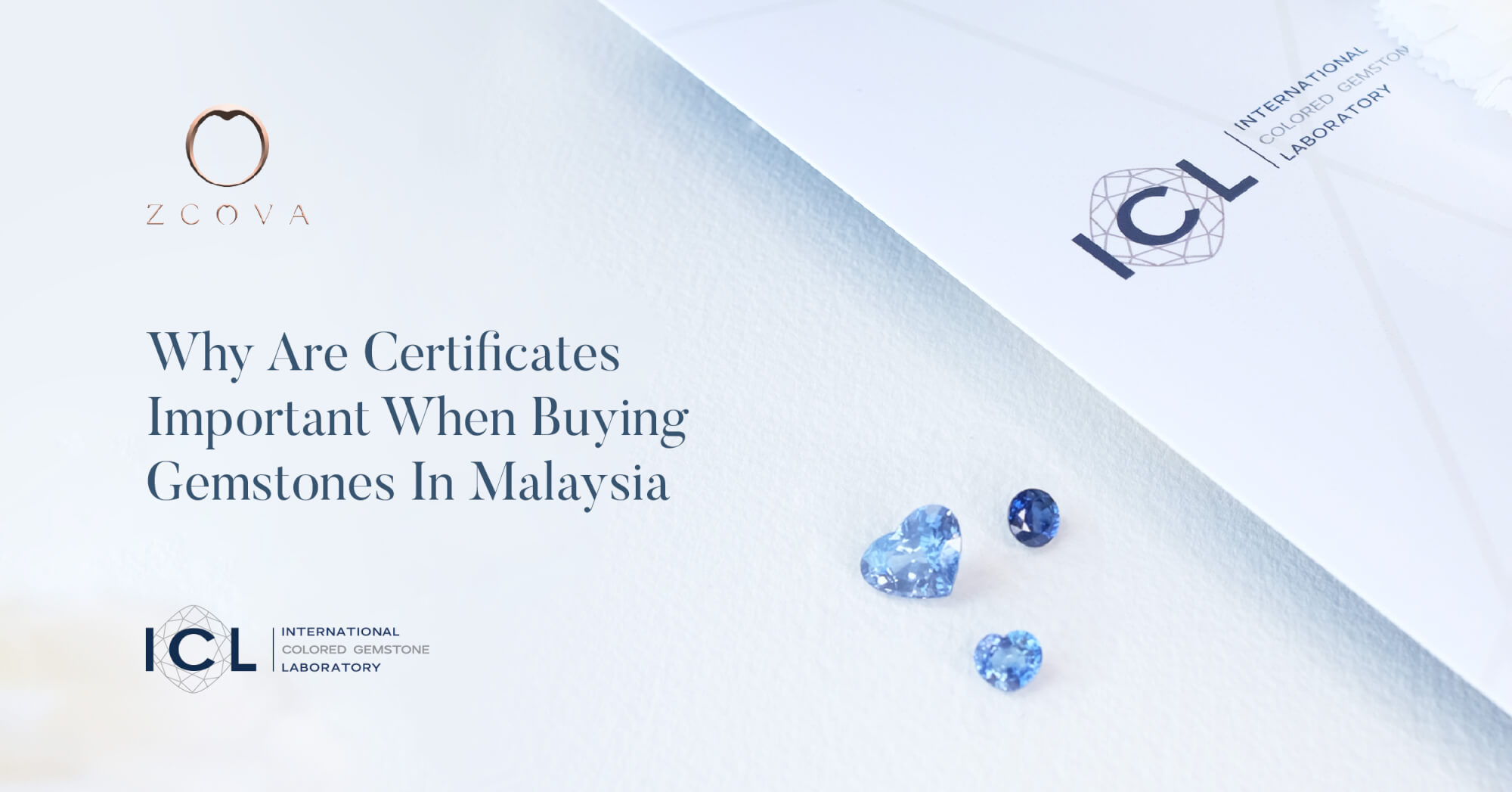
Why Are Certificates Important When Buying Gemstones In Malaysia
You may be wondering: Is my gemstone real? How to prove if my gemstone is authentic? We know your concerns and we’re here to narrow down some of the important things that you should know about your gemstone and why is it important to have a gemstone certificate. Without further ado, stay with us and let us guide you through!
#1 The Certificate is Your Gemstone’s Identity
For coloured gemstones, carat, colour and origin greatly affect their value. These and other details like their photograph and treatment needs to be written in the gemstone’s certificate. Without the cert, you won’t know if you’re truly getting the gemstone you paid for.
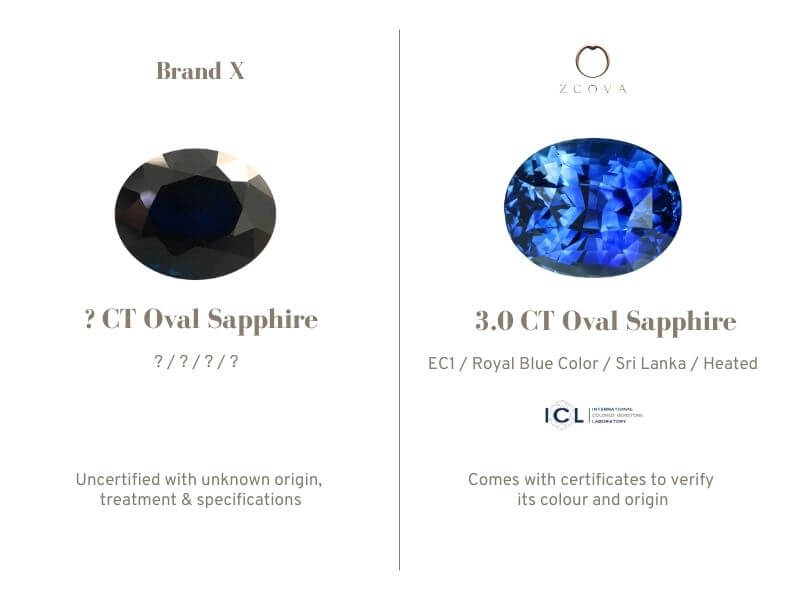
#2 Unbiased & Honest Grading by Independent Laboratory
Why is it important to get your gemstone graded by an independent laboratory instead of an in-house gemologist? Reputable international laboratories such as GRS, SSEF, LOTUS and ICL have a long history of gemstone grading with trained and experienced staff. These laboratories use sophisticated equipment to accurately identify gemstone specifications.
As independent labs, they are also not involved in the sale of gemstones and do not profit from appraisal inflation. Their grading is objective, unbiased and concise, making their certificates reliable.
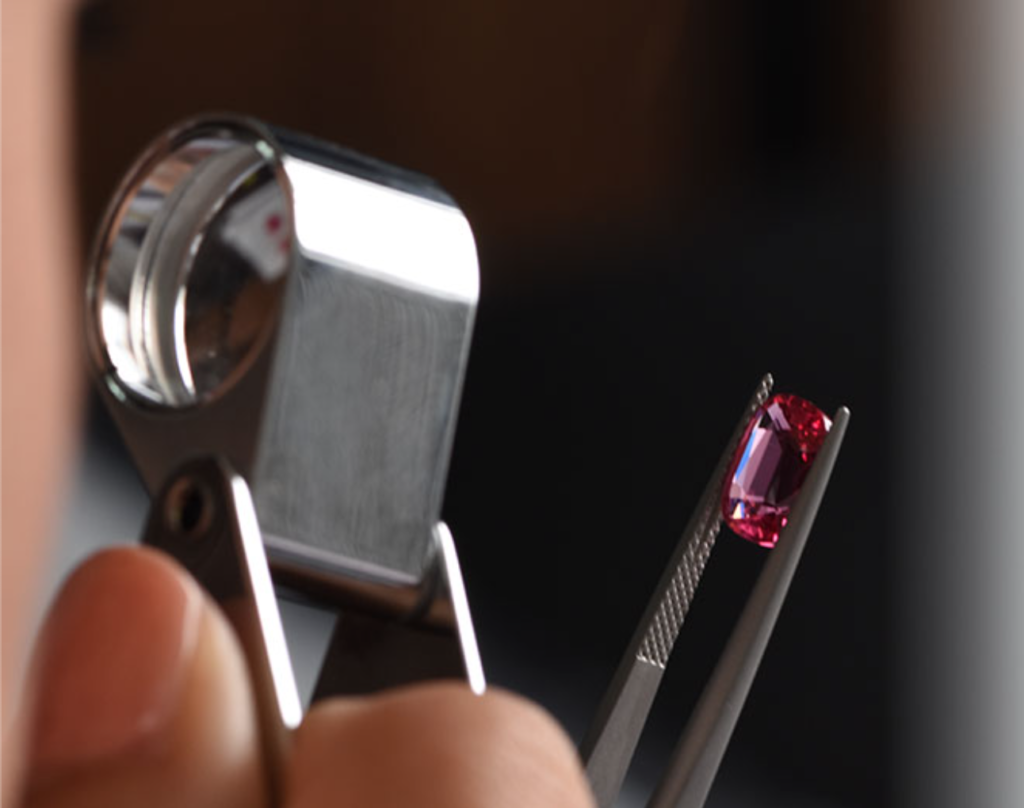
#3 Be Certain Of The Gemstone Type
Gemstones come in a variety of colours and can cause confusion. In the past, red spinel gemstones have been called “the great imposter” as they were mistaken as rubies. A famous example is the United Kingdom’s Imperial State Crown – “The Black Prince’s Ruby” in the front center of the crown was discovered to be a spinel later on.
Take a look at these three green gemstones. Can you tell what type of gemstones they are?
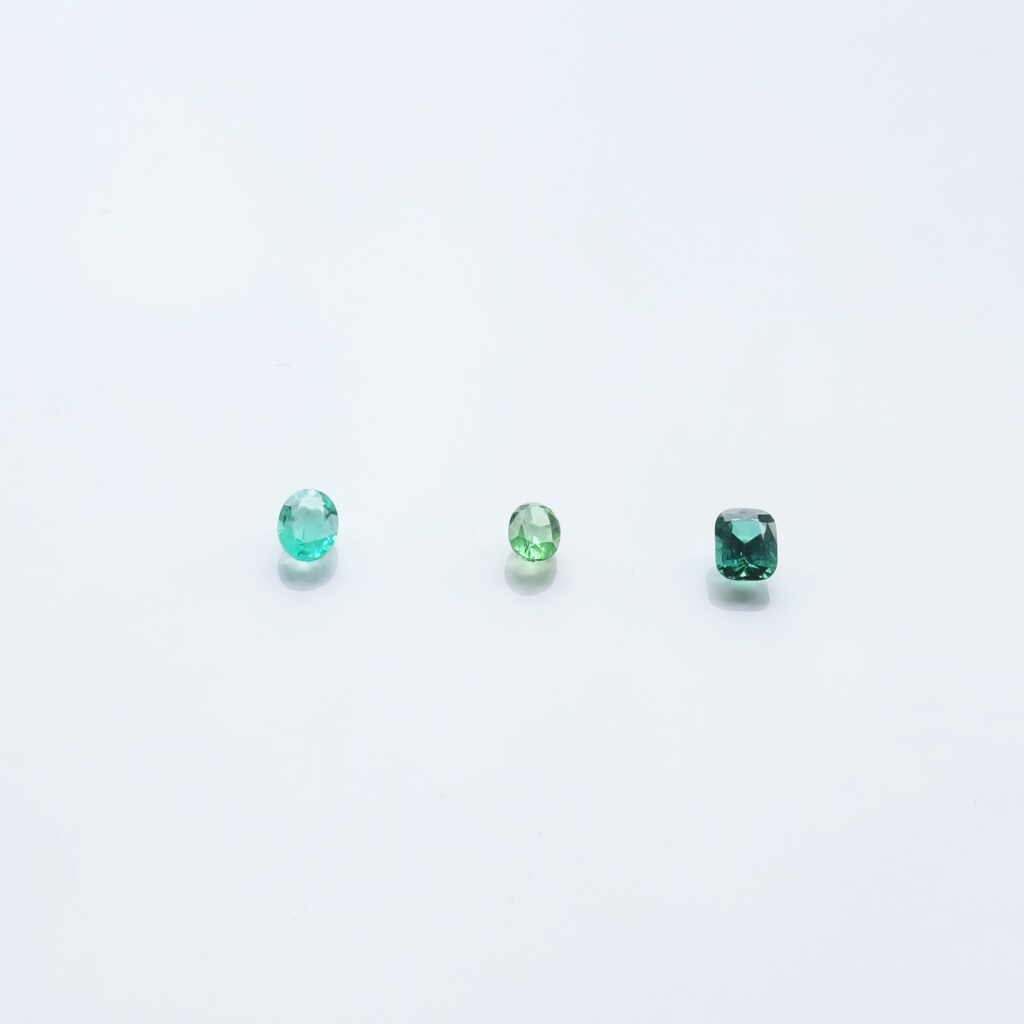
From left to right, they are Emerald, Tsavorite, and Tourmaline.
They may all be green but Emeralds are the most expensive while Tourmalines are more affordable as they’re not as rare.
#4 Origin Determines Colour and Value
The origin and colour of a Sapphire are the two most important factors that affect its value. All origins can produce low to high-clarity gemstones (from EC1 to I2), but not every origin can produce the same colour quality. As shown below, these three sapphires have different appearances despite them all being ‘Vivid’.
The most popular choice is the vivid Royal Blue Sapphire; these are often found in Madagascar and Sri Lanka but the Vivid blue from Sri Lanka is always brighter. There are also sapphires from basaltic sources which have a greenish-blue colour. Hence, the price of the gemstones differs depending on the origin.
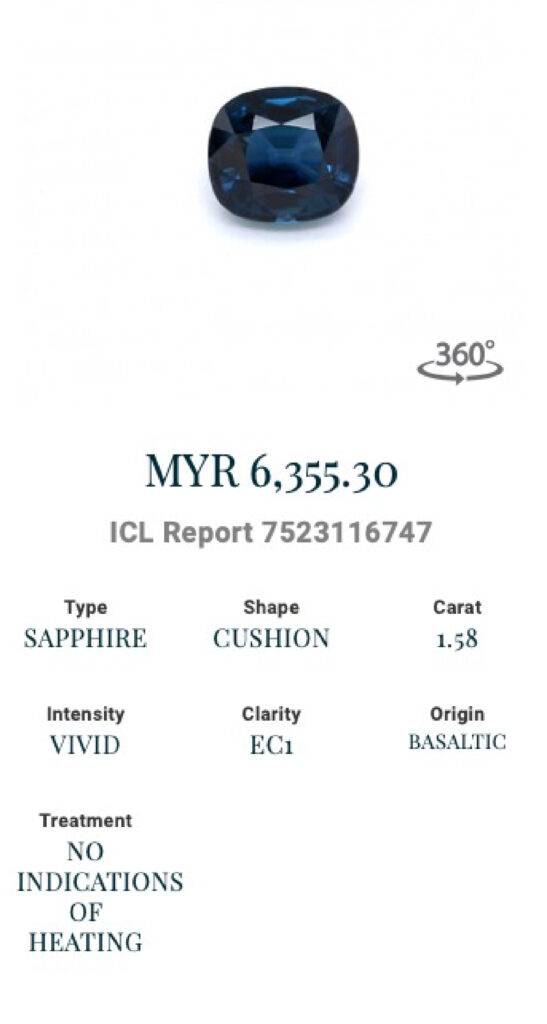
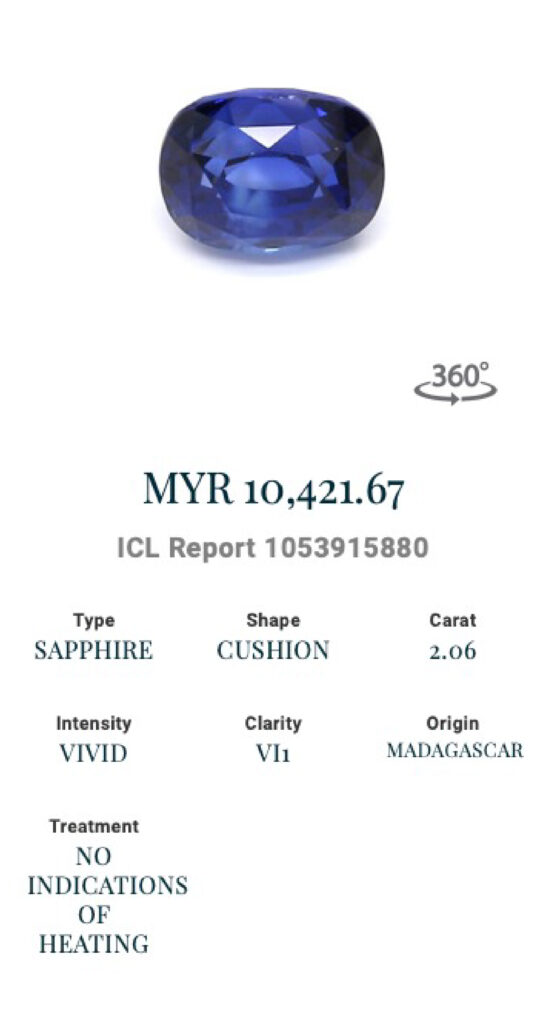
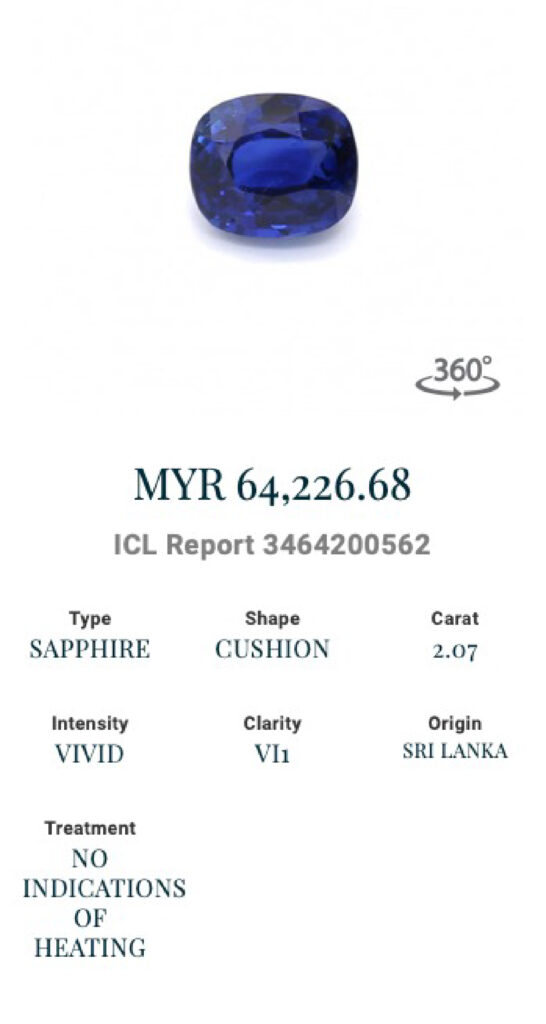
#5 Accurate Colour Intensity and Hue
As mentioned above, gemstone colour greatly affects its value. For most, a deeper or more vivid colour such as in Royal Blue Sapphires and Pigeon Blood Rubies have a higher value.
When viewed in-store, the different lightings cause colour to be polarised and absorbed differently resulting in inaccurate colours. The gemstone’s colour will also be affected by the jewellery setting or background.
To counter this, laboratories use standardised and controlled lighting to accurately determine colour intensity and hue in gemstone certificates.
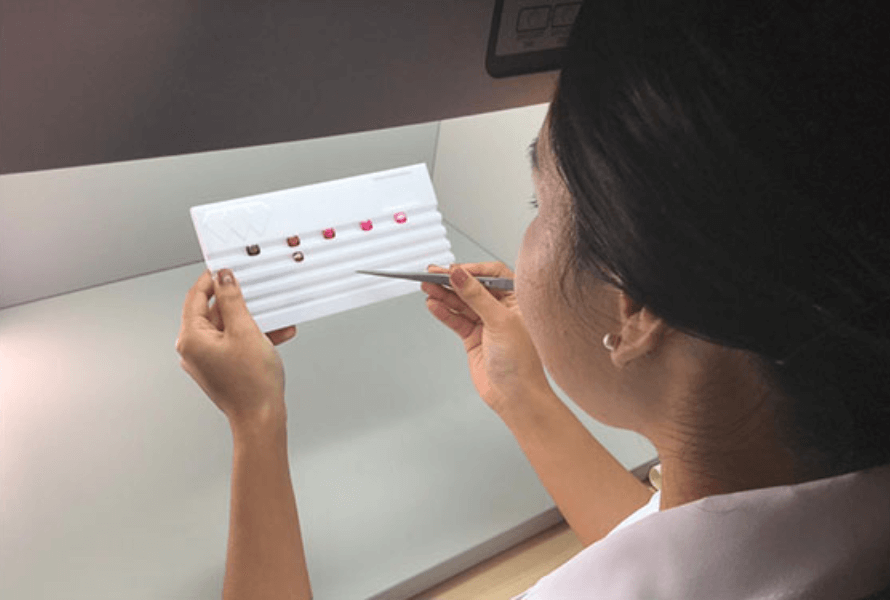
#6 Know Your Gemstone’s Treatment
Most gemstones in the market are treated in one way or another to improve their appearance. Understand the different types of gemstone treatment as it affects the value of your coloured gems.
Untreated Gemstones
Untreated gemstones are those that remain natural, without any enhancement. They remain in the same form as when they were extracted from the earth. The only process they go through is polishing and cutting for jewellery.
Treated Gemstones
There are many types of gemstone treatments. Gemstones that undergo heating, oiling, glass filled, dyeing or bleaching are called treated gemstones. Each treatment has a different level of intensity that will determine its purity and value.
#7 Ensure Your Gemstone is Natural And Not Synthetic
Synthetic Gemstones come in a few different forms:
Lab-Grown Gemstones
Synthetic gemstones can be grown using techniques like Flux Grown, Flame Fusion, and Hydrothermal.
Imitation
Different materials such as Glass, Plastic, or Synthetic Zircons are used to imitate gemstones. Besides this, there are 2 other techniques – Doublet and Triplet – to imitate a gemstone. These are made by glueing two or three pieces together, usually combining a valuable gemstone with a less expensive material such as synthetic gemstones or glass.
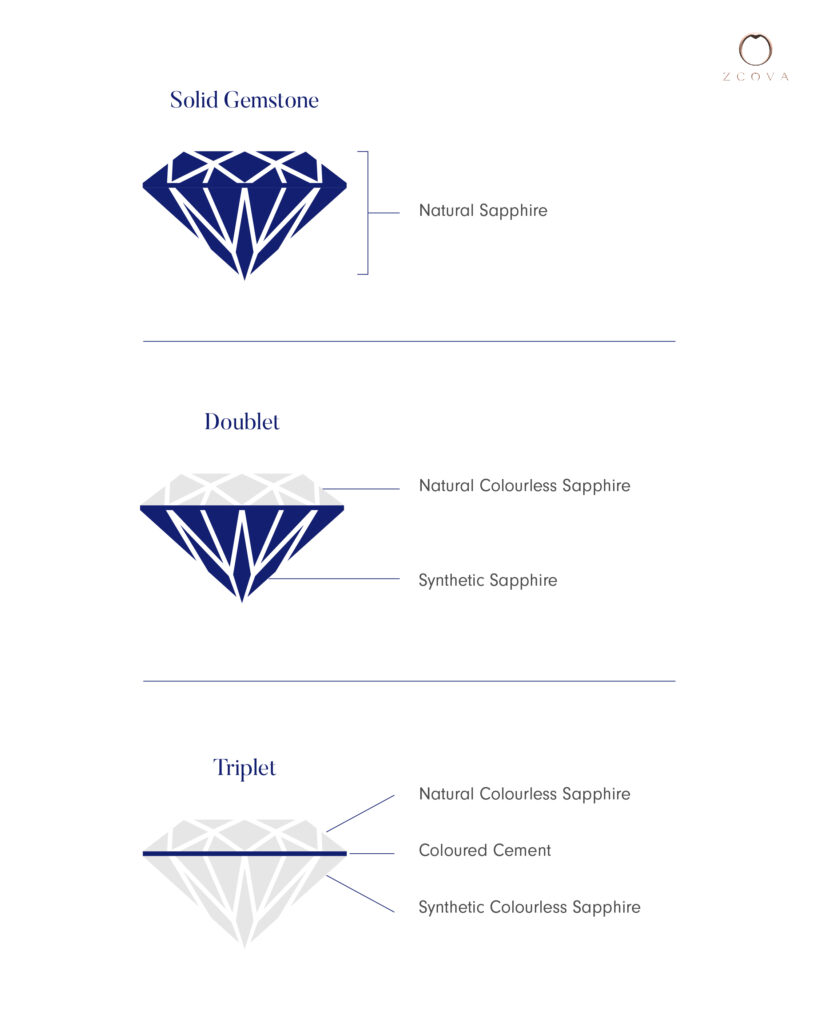
i) Doublet – Top layer using natural gemstone and the bottom layer using synthetic gemstone OR top layer using natural or synthetic gemstone with a bottom layer using Glass or Plastic.
ii) Triplet – Top layer using colourless gemstone, coloured cement or resin for the middle layer and bottom layer using synthetic gemstone, glass or plastic.
With all these possibilities with synthetic products that are not visible to consumers, it is absolutely necessary to have a certificate to determine if there is any treatment done to the gemstone. These treatments are not visible to the naked eye, and some treatments such as glass-filled treatment are detrimental to the hardness of the gemstone, causing it to be brittle.
*We do not sell synthetic gemstones. Rest assured that all gemstones in our virtual inventory are natural mined.
Now, do you know how important it is to have a gemstone certificate? At ZCOVA, we offer 3 gemstone certificates: ICL Certificate is provided for all gemstones, but you can add on LOTUS Gemology and GRS certificates for more quality assurance.
We want our customers to understand their gemstones better and to feel safe & stress-free when purchasing gemstones from us!
What is an ICL Gemstone Certificate?
In short, the International Colored Gemstone Laboratory (ICL) helps you to determine the specifications and the value of your gemstone. Previously, there was no universally accepted grading system to grade coloured gemstones and no answer on how to analyze and grade them.
Therefore, ICL has established its typical way to grade a gemstone:
- The determination of a gemstone’s origin
- The information of your gemstone (cut, colour intensity and clarity)
- The measurement and weight of your gemstone
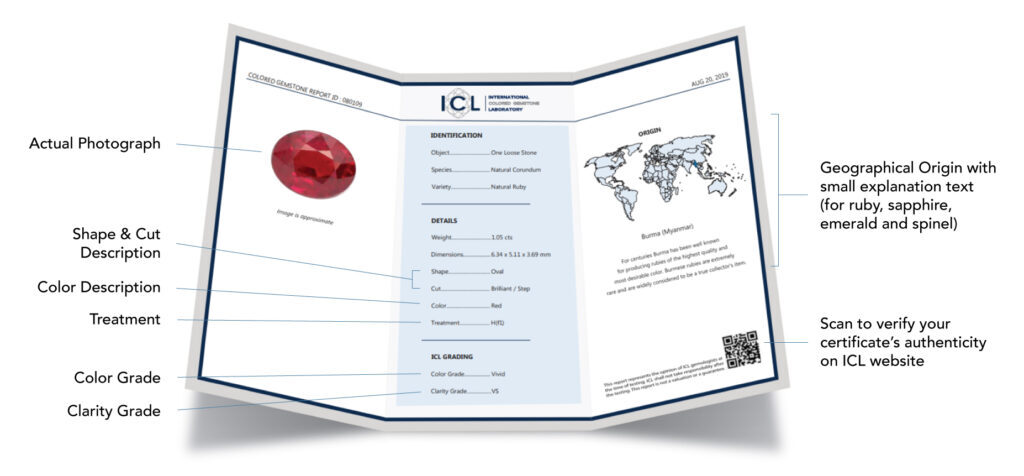
This gemological laboratory from Bangkok is operating under strict rules with the highest standards of gemological grading. Thus, there is nothing to worry about!
We hope this blog helps you to have a better understanding about gemstones and the importance of a certificate. If you still have questions or are not sure which gemstone to pick, please feel free to contact us!